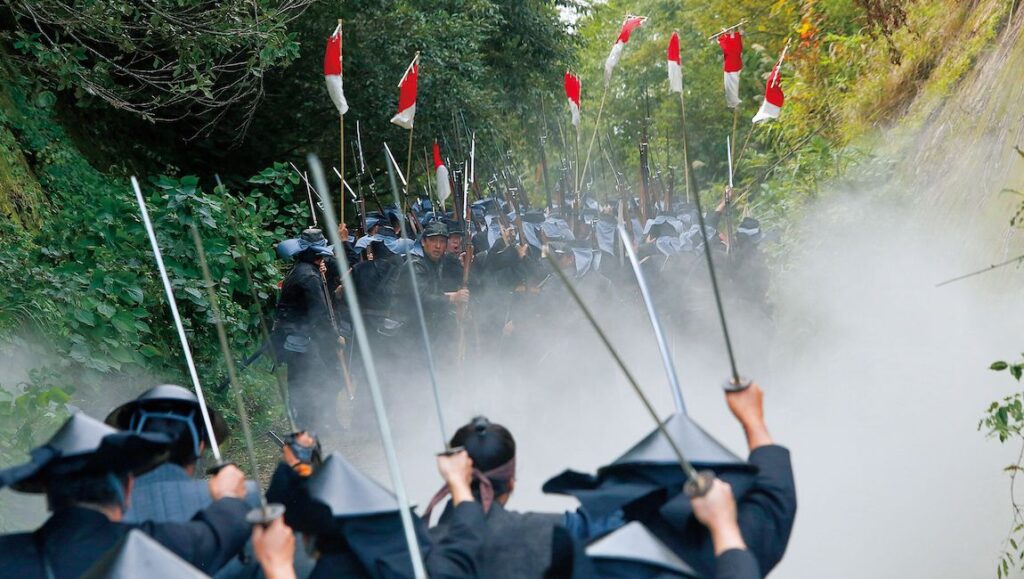The end of the Edo period in Japan in 1867 was basically the end of the samurai era, and has, accordingly, been the inspiration for countless films. The Pass: Last Days of the Samurai focuses in particular on events during the Boshin War that followed the next year, and while it doesn’t do much to shake up a familiar tale or a familiar style, its patience and performances make it more than engrossing to behold.
After a somewhat daunting narration explaining the military and political situation at the time, we’re introduced to Kawai Tsugunosuke (Kōji Yakusho), chief retainer in the Nagaoka province, who finds himself caught between the rock and hard place of two warring factions, essentially unable to choose a side due to the demands of loyalty both to his samurai code and to his lord. Though he favors the country’s adoption of Imperial law, his master is loyal to the collapsing shogunate. He fears another armed conflict would be a catastrophe, but after his petitions for peace to both sides are essentially dismissed, he readies for war.
The film is essentially split into two parts, with the first half belonging to a scrutiny of Kawai and his general strength of character and charisma. He’s a thoughtful, generous man, gentle and affectionate with his wife, encouraging a younger vassal to pursue a career as an artist, and so forth. Koji’s performance is, as is the style of such a film, unfussy and even a bit placid, but the stoicism is baked right into the character such that when Kawai is seen at leisure, it’s a genuine delight to watch him loosen up. The second half is dominated by training and combat, and director Takashi Koizumi — who incidentally was an assistant director on Kurosawa’s legendary Ran — keeps things economical without sacrificing scope. It’s clear that he’s also paying a bit of homage to the maestro, with long static wide shots of armies in battle, and of course the occasional wipe just for fun. With Kawai going down in history as a martyr, you know how it’s all going to play out, but a satisfying jidai-geki like this one doesn’t need to do much more than play the hits. Inessential but satisfyingly epic and with appropriate doses of pathos and gentle philosophy, The Pass gets the job done.
Published as part of Japan Cuts 2021 — Dispatch 1.


Comments are closed.